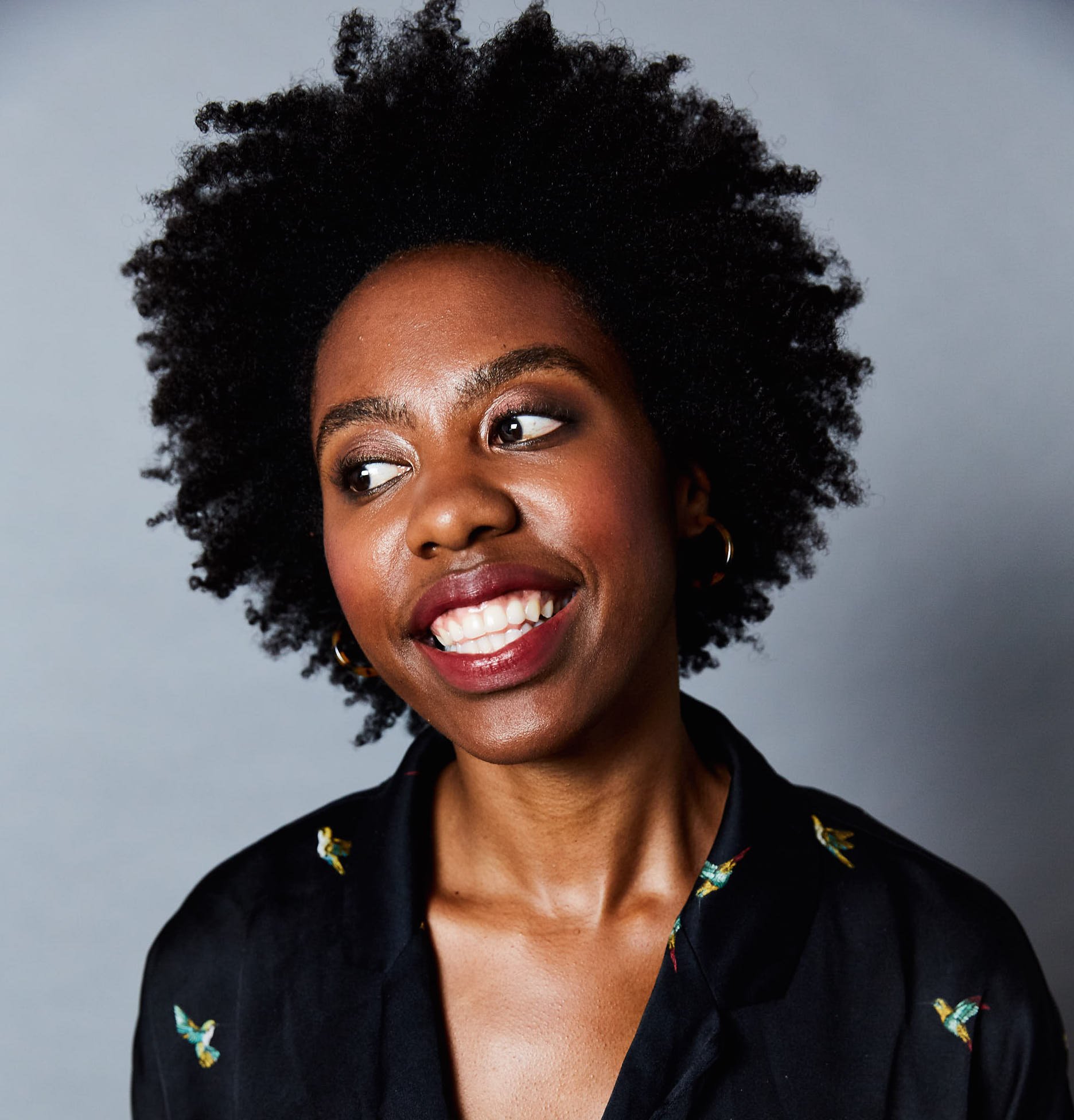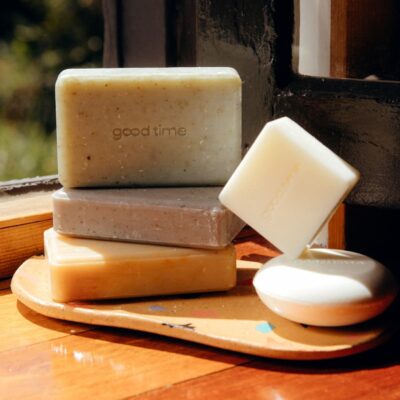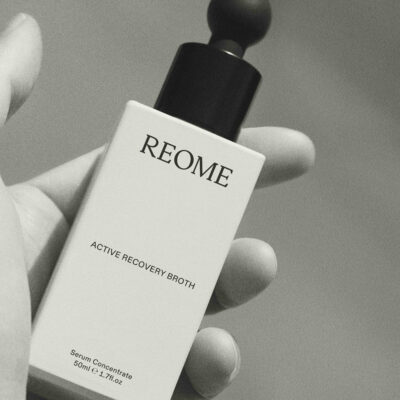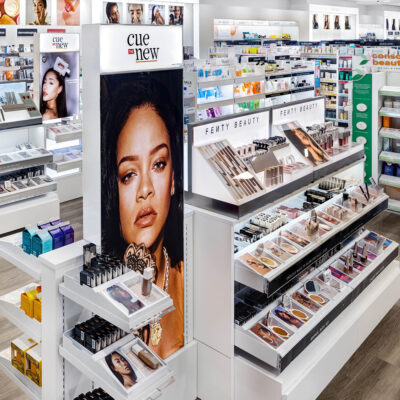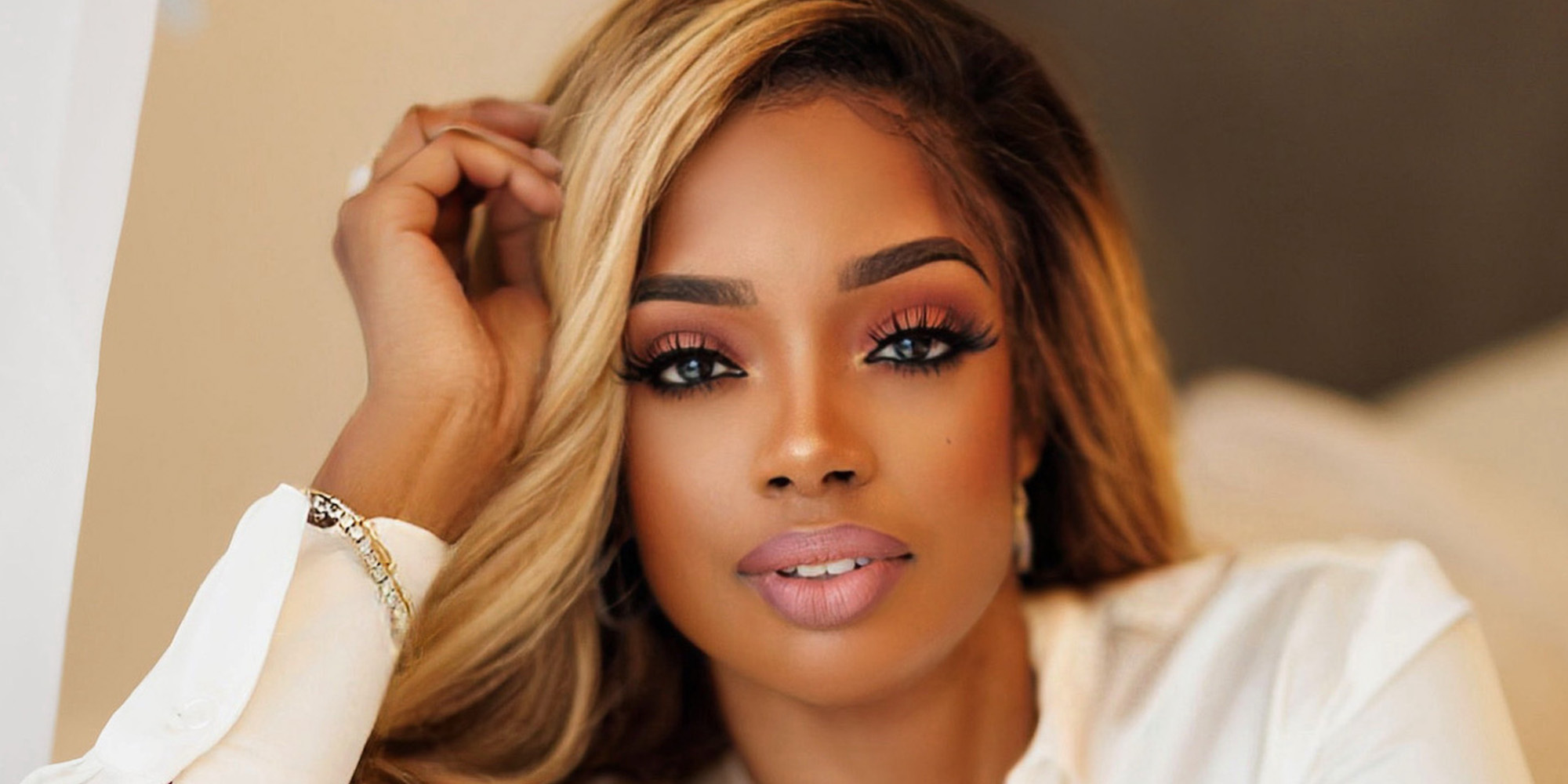
Where Beauty Brand Founders Think DEI Initiatives Stand Today In The Wake Of The Lawsuit Against Fearless Fund
Fearless Fund, the Black women-owned venture capital firm backing early-stage businesses owned by women of color, including the beauty and wellness brands Brown Girl Jane, Oui The People, Hairbrella, Kushae, Live Tinted and Beauty Bread Supply, was indefinitely barred from deploying a program last year that doles out $20,000 grants to Black female entrepreneurs. American Alliance for Equal Rights, a nonprofit headed by Edward Blum, the legal strategist behind the United States Supreme Court case that dismantled affirmative action in college admissions, sued the program claiming that it discriminates against people of other races.
In January, Fearless Fund filed an appeal to reinstate the grant. The case is still pending—and it’s just one example of the scrutiny diversity, equity and inclusion programs are encountering today. To get a temperature check on how founders are feeling about DEI, for the latest edition of our ongoing series posing questions relevant to indie beauty, we decided to ask 20 of them the following question: How do you think the lawsuit against Fearless Fund will impact the industry and specifically DEI efforts?
- Camille Bell Founder, Poundcake
We’re already seeing a decline in DEI initiatives and fulfilled commitments on pre-established ones. I think this lawsuit has the potential to either be the gravestone on entrepreneurial DEI as a whole or the confidence corporations/organizations need to continue them.
If the former, we will know that we have fully entered a new era, one where even the most superficial discussions or corrections of racial inequity in our country will be destroyed in the name of “justice.”
- Tiana Duncan Founder, Indigo Movement
I think the lawsuit against Fearless Fund will impact the industry in a few ways. Firstly, it will give more credit to how powerful social media and traditional media are, and how important the continual fight for equity is.
From my perspective, watching the fight for progress (Fearless Fund) and the fight against it (lawsuit) is a way to continually bring awareness about the unfairness and illogicality of the lack of funding that woman-owned businesses receive.
I mean, only 1.9% of women-owned businesses receive funding in the venture capitalist world—1.9%. Now, imagine breaking that percentage down by race, identity and religion.
In regards to its impact on DEI (diversity, equity, and inclusion) efforts, we're going to see some companies' DEI initiatives disappear, and more states fight to pass bills across the country targeting DEI funding, practices and promotion in schools.
- Jamika Martin Founder, Rosen Skincare
Honestly, I do think there will be a bit of a corporate slowdown as large companies have to hedge their risk here. I think the independent organizations who’ve been leading the wave will continue as it’s a lot less risky for them.
I do hope we see more corporate partners come to support publicly or legally as I think the more support we can get behind this issue, the more likely we are to continue to see these investments in underrepresented communities.
- Calvin Quallis Founder and CEO, Scotch Porter
I believe the lawsuit against Fearless Fund could potentially impact the way beauty brands, funds and programs with DEI initiatives approach, structure and report their efforts. To avoid the legal pitfalls, the beauty industry may have to rethink how they choose to describe their program and efforts.
I do hope and believe that the industry needs to continue to support DEI efforts because it’s the right thing to do. Furthermore, there’s decades of data that supports the business case for building a more diverse, inclusive ecosystem.
More recently, in January of 2020, Bloomberg released a report that found that hedge funds not led by white men outperform nearly 2 to 1, and that minority and female leaders did 72% better than their peers.
- Alicia Scott Founder, Range Beauty
The current lawsuit against Fearless Fund is already impacting how organizations show up in their DEI efforts. We saw a sharp decline in support for Black-owned businesses since 2020, and now with organizations feeling fearful of legal repercussions or who want to use this lawsuit as an excuse, we will unfortunately see even more of a drop-off in accelerators, funding and additional resources.
Fearless Fund was the first investor to believe in my mission with Range Beauty. If more investors were open to funding Black founders consistently, then there wouldn't be such a significant need for those organizations who make us a priority. We want people to pay attention that this isn’t only affecting Fearless Fund and is not an isolated event.
- Niambi Cacchioli Founder, Pholk Beauty
As an African American, I felt personally assaulted that Blum and his team were contorting and weaponizing civil rights protections against Black women. Although the Fearless Fund offers a range of funding and mentorship for underrepresented BIPOC women, the lawsuit explicitly goes after their program for Black entrepreneurs.
When I saw that the Hello Alice x Progressive grant for Black women was similarly targeted, I realized that they were singling out Black women to bear the brunt of a backlash for the transformative gains that diverse women founders across the U.S. had made since the pandemic.
What’s truly baffling about cynical anti-equity initiatives like the lawsuit is that they actually hurt the broader U.S. economy. Black women led in creating new businesses and new jobs during and after the pandemic.
As a sixth-generation African American whose mother grew up in segregated Kentucky, hiring within my diverse local neighborhood has been a priority since launching Pholk. Having access to grant funding meant that I could hire Black, brown and women talent right in my community rather than outsourcing abroad.
Statistically, Black and brown folk tend to spend money outside of their own neighborhoods, so they are continuing to circulate the dollar. The lawsuit is making headlines, but the real story for me is that, when you go after initiatives that fund and mentor Black women innovators, the entire country loses.
The silver lining is that the lawsuit has been a wakeup call for brand founders to think of new ways to collaborate and share resources. I’m so excited to see beauty brands embrace cross-selling and retailers like Thirteen Lune, Pretty Well Beauty and Melanin Grace invest in us through continued POs, marketing and industry guidance.
Here in Jersey City, NJ I opened up a Pholk microshop at Rudo Plants & Home, a Afro-Latina owned retailer. Within a few such months, we’ve put in place staff-sharing, offered community workshops on grant-writing and hosted other Black, LatinX and women-owned founders pop-up opportunities.
- Ciara Imani May Founder and CEO, Rebundle
My feeling is that grant-making organizations, funds and investors are already finding new ways to counteract these obtuse claims. I don't see a world in which equity in fundraising and supporting small, minority businesses will disappear. Instead, we'll have to get even more creative.
- Yasmin Zachary Founder, Uzari Skincare
Discrimination, in any form, is unacceptable, but taking proactive steps to combat systemic biases is essential. In 2020, only .35% of venture capital funding supported Black women founders! Are we saying this is too much? Clearly not. And that’s why affirmative measures are needed.
On the bright side, this lawsuit draws attention to the issue and encourages increased investor support for women founders, particularly Black women, aligning with our imperative for equitable opportunities.
- Cora Miller Co-founder, Young King Haircare
As a Black-owned beauty brand dedicated to empowering young men of color, I am acutely aware of the challenges faced by multicultural founders in creating brands that cater to underrepresented consumers. For years, we have strived to fill in the gaps left by mainstream beauty companies, crafting products specifically tailored to the unique needs of our communities.
I believe the lawsuit against Fearless Fund threatens to undermine the progress made by Black founders like me and other minority entrepreneurs who have worked tirelessly to build a more inclusive beauty industry. By targeting funds like Fearless Fund that support minority-owned businesses, this lawsuit sends a jarring message to aspiring underrepresented entrepreneurs that their efforts to create meaningful change in the beauty industry may be met with legal challenges, in turn stifling innovation, perpetuating exclusion and discouraging investment in DEI initiatives within the beauty industry.
For me, the broader implications of this lawsuit are concerning as this could have far-reaching consequences not only for the growth of Black or minority-owned beauty brands, but also for the overall diversity and inclusivity of the industry as a whole.
- Katonya Breaux Founder and CEO, Unsun Cosmetics
The lawsuit against Fearless Fund only serves to create a larger void for investments into Black-owned businesses. Statistics show that Black women-led companies are getting abhorrently less funding than other companies are getting.
So, why would someone wish to deter progress further from this group of people? I'm concerned that any progress that was made in the last few years will be reversed, and that is truly disheartening.
- Candace Mitchell Harris Founder and CEO, Myavana
I believe it could potentially disrupt how companies and organizations can legally allocate resources to the communities that have been disenfranchised for decades, which has been the mission of the Fearless Fund.
It will put a closer lens on many DEI initiatives and slow down the momentum of countless funds and programs that are doing the justice work of providing access to capital that is warranted to level the playing field for entrepreneurs in every industry. The right decision in this court case is necessary to protect the integral work of civil rights through the generations.
- Dr. Anne Beal Founder, AbsoluteJOI
I think this is an interesting question because, when it comes to VC investments in the past few years, about 2% of venture dollars go to women, 1% goes to women of color, and Black women have been able to access around .3% of venture dollars despite being the demographic group with the highest rates of starting new businesses.
It is also worth noting that, while there was some interest in investing in Black-owned businesses during the Black Lives Matter surge of 2020-2022, the recent 2023 data show absolutely no progress in the funding landscape for women and people of color. Lastly, Fearless Fund is currently fighting to lift an injunction that suspends their program to provide just $20,000 in funding to early stage startups.
This is the funding environment the Fearless Fund was created to address, and I am amazed that programs offering even small awards to support Black women entrepreneurs are enough to generate legal challenges. So, I am questioning whether the impact of the lawsuit can make the landscape get any worse.
I think the more interesting—and meaningful question—is, what can be done to improve funding, employment and inclusivity in the beauty business? And what can every person within the industry do to move this business forward to represent, serve and celebrate the diversity of our customer base?
We are fundamentally a CPG business and need to embrace a deep understanding and appreciation for the needs of all of our customers. I think, given the number of brands and retailers that did not survive 2023, we should all be looking for any competitive advantage to survive in this market—and being genuinely inclusive of the U.S. and global customer base is an easy win.
I think a broad-based commitment to that competitive advantage would have a greater impact on the funding and DEI environment than any single fund or pledge and would ultimately move this industry further along to being truly inclusive and remaining relevant. But, until that time comes, I’ll continue to support efforts by the Fearless Fund and others to unleash the creative and economic power of underrepresented founders.
- Jamila Powell Founder, Naturally Drenched
Diverse brands will continue to enter the beauty space and thrive because they deserve to be there. Grants are a lifeline that keep many brands afloat. DEI allows for inclusion of a variety of people, it is not just about race. This lawsuit is an easy out for companies that were never fully committed.
However, I do believe grants supporting DEI initiatives will remain in place, and companies who are no longer interested in creating opportunities will be replaced by companies that want to foster real change.
- Karen Z. Bailey Founder, KZB Salon Systems
Black women have unique beauty needs and preferences that are often underserved by mainstream beauty companies. Black women entrepreneurs in the beauty industry play a crucial role in meeting these needs by creating products that cater specifically to their target audience.
However, without adequate funding, their ability to develop and offer a diverse range of products is hindered. This can lead to a lack of representation and limited choices for Black women consumers.
It is important to recognize the value and potential of Black women-owned businesses in the beauty industry and support their endeavors through fair access to funding resources and mentorship. By addressing the systemic barriers that hinder their progress, we can foster a more inclusive and equitable industry that benefits everyone.
- Reshona Jessamy Founder, Novara Beauty
I think the Supreme Court got it wrong in SFFA v. Harvard and SFFA v. UNC when it ruled that colleges could not consider race in college admissions. This unfortunate decision created a ripple effect that emboldened the American Alliance for Equal Rights to bring suits in the sector of entrepreneurship.
The lawsuit against the Fearless Fund, a program dedicated to supporting Black-owned women's businesses, underscores the systemic barriers and biases that persist within the investment landscape. The stark reality that Black business owners face a rejection rate three times higher than their white counterparts, coupled with the disproportionate lack of funding for Black-owned women's businesses, highlights the urgent need for industry-wide reform to address racial inequities.
I believe the lawsuit against Fearless Fund has significant implications for the beauty industry's progress in the areas of DEI and funding for Black-owned businesses. The beauty industry, like many others, has been striving to improve DEI representation and support underrepresented founders. However, this lawsuit underscores the challenges and complexities inherent in achieving true equity.
The outcome of this lawsuit has the potential to impact investor attitudes and funding decisions within the beauty sector. It may influence how investors approach DEI initiatives and funds dedicated to Black-owned businesses, shaping their strategies and priorities moving forward.
This is a lawsuit that I think we need to follow closely and rally behind the Fearless Fund in the hope that this lawsuit creates good law that propels the beauty industry forward.
- Daria Dana Founder, Zigleys
This lawsuit has potentially catastrophic consequences for all organizations promoting racial equity through prioritization of investment in Black and other minority communities. It could and would be used as precedent to go after the many other organizations whose missions and outreach target minority groups who have been historically (and oftentimes intentionally) overlooked and disadvantaged.
Organizations like Fearless Fund were created for a reason: Black women were applying for capital through the mainstream means, but were receiving only a nearly imperceptible sliver of the available capital compared to their white counterparts. Over time, this increased racial inequity by widening the wealth gap, making it harder for the Black community to keep up.
Thus, the Black community and other minority communities facing similar issues have had to create specific avenues to account for the lack of support by creating it themselves. The results have been astonishingly positive, creating unprecedented growth in Black business ownership and wealth. That's why this case should be important to everyone.
Not only could it set the Black community back in ways that we've yet to understand the gravity of, but every other minority group will be at risk as well of losing what in many cases is their only chance at securing even a small amount of the capital that's been readily available to white people for centuries. As far as DEI, this is the opposite of equity and inclusion and rather, more of the same targeted attacks that created the need for organizations such as the Fearless Fund today.
- Yaminah Childress Founder, YANY Beauty
In an intimate setting recently, I heard firsthand from Arian Simone, co-founder and CEO of the Fearless Fund, about the significant strain the lawsuit is placing on the industry's resources, impacting planned support for founders.
As both a beauty founder and a legal professional, I believe the lawsuit will negatively affect the industry, particularly regarding DEI efforts. It directly withdraws potential capital from the Black and brown female founders supported by the fund, while also deterring organizations from implementing programs for underrepresented founders due to legal concerns.
If the lawsuit doesn't favor Fearless Fund, it sets a precedent implying that supporting historically underserved populations is legally insignificant, undermining years of DEI efforts. Black female founders already receive less than one percent of venture capital, relying on organizations like Fearless Fund for support. If they cease operations, access to VC will become exceedingly limited.
- Shaina Rainford Founder, Bask & Lather
As a Black female entrepreneur, the lawsuit against Fearless Fund sends a concerning message about the ongoing barriers faced by Black women in accessing capital and support. It highlights the persistent systemic challenges in achieving diversity, equity and inclusion within the entrepreneurship ecosystem.
The outcome of this lawsuit will likely influence future initiatives aimed at supporting underrepresented founders, potentially shaping the direction of DEI efforts in the industry. It underscores the urgency for comprehensive structural changes to dismantle discriminatory practices and ensure equitable opportunities for all entrepreneurs, regardless of race or gender.
- Piersten Gaines Founder, Pressed Roots
As a Black-female founder, navigating the entrepreneurial landscape means not only understanding the nuances of building a business, but also acknowledging the systemic barriers that Black business owners face, particularly in accessing funding.
The Fearless Fund is especially important as it plays a large part in the movement of granting Black-owned businesses adequate financial support, which is a necessity for sustainable growth and impactful change in our communities.
According to Crunchbase, in 2023, Black founders received .13% of all capital allocated to U.S. startups in Q3 ($39.7 million out of $29.9 billion). With the majority of our population being racially diverse by 2045, Black founders need to have the opportunity to be funded to create products and services for communities that are often underserved.
At Pressed Roots, we specialize in silk blowouts for textured hair as the beauty industry has historically excluded these hair textures for decades. Nevertheless, we are providing a solution for a demand we see across all communities no matter ethnicity or race. Without funding assistance for Black founders all industries, including the beauty space, will continue to overlook the needs of underserved communities.
For founders like myself, allies are essential at every step, amplifying our voices, our ideas and supporting the creation of businesses that are making a difference. That’s exactly why initiatives like the Fearless Fund are essential to provide vital resources that empower us to thrive and grow and provide services for our communities and beyond.
- Courtney Adeleye Founder and CEO, Olbali
The lawsuit against the Fearless Fund represents a significant turning point for the industry, which, until now, seemed to be gradually moving towards greater funding equality. This shift comes at a crucial time, highlighting the persistent and often overlooked disparities in funding, particularly within the Black community.
My personal experiences underscore the deep-rooted issue of inequity in this sector, emphasizing the urgent need for systemic change to foster a more inclusive and equitable funding landscape.
If you have a question you’d like Beauty Independent to ask beauty entrepreneurs, please send it to editor@beautyindependent.com.
